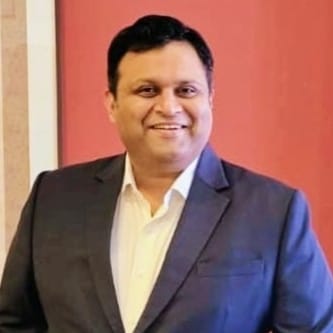The Blind Spots That Shape Our Leadership

bySantosh Nagasamy
Fifteen Years Later
Last week I met some of my classmates from Manchester Business School. It has been fifteen years since we graduated, and the evening was filled with laughter and memories. We spoke of late night case studies, professors who left their mark, and how life had unfolded since we left those classrooms.
The conversation began with nostalgia, but soon it turned into something far more revealing.
An Unexpected Honesty
One of my classmates, someone I have always admired for her determination, spoke about her journey. She had built a career in top corporates and later stepped into entrepreneurship. On the surface, her story looked like an inspiring success.
But what she shared next was different. She spoke of the exhaustion of always having to prove herself. Of walking into rooms not designed for her. Of the invisible weight she carried even as she moved forward.
Her words were calm, not bitter. Honest, but heavy.
The Blind Spot I Did Not See
As I listened, I felt a discomfort I could not ignore. Because in my world things looked different. I grew up surrounded by strong women. I work alongside women who are among the most capable I know. They rarely complained, and I had always believed competence was the great equaliser. If you were good enough, the world would recognise it.
That night, I shared the conversation with my wife. She smiled and said, “You have seen it, San. You just have not had to feel it.”
Those words stayed with me.
What Leadership Often Misses
After that evening I began to notice things I had overlooked. The quiet interruptions in meetings. The constant balancing act between professional responsibilities and expectations at home. The need to be confident without being called aggressive, to be firm without being labelled difficult.
And then another blind spot became visible. It is not only women who face invisible barriers. People from smaller towns and cities, those who may not communicate in English as smoothly as some of us do, often find themselves dismissed before their ideas are even heard.
I have tried to be conscious of this at Phitons, working to ensure language is never a barrier to contribution. Yet I find myself asking: how many ideas have I ignored in the past, not out of malice, but because we did not create the right platform for those voices?
Is meritocracy really working if talent is hidden behind these walls?
Acknowledging the Other Side
I want to be clear that I am not discounting the struggles men face. I have had to overcome my share of hurdles as well, navigating expectations, managing pressures, and pushing through challenges that were visible and demanding.
But this article is not about the struggles we already recognise. It is about the ones that remain unseen. The invisible barriers that quietly shape lives and careers without being acknowledged. And it is those blind spots that often go unnoticed in leadership.
The unspoken struggles of men deserve another article in themselves.
Reflection at Work
At Phitons many of our strongest performers are women. Not because of a policy or a quota. Simply because they were the best for the role. And some of our most valuable insights have come from colleagues who did not fit the traditional mould of polished English speaking professionals.
These experiences remind me that leadership is not only about amplifying talent. It is also about noticing what we miss. What assumptions go unchallenged? Which voices never get heard? And what could we achieve if those barriers were lifted?
Why This Matters to Me
That conversation with my classmates reminded me that awareness is not something we can take lightly. Once you see what you have missed, it begins to feel less like a choice and more like a responsibility.
I want my daughter to grow up in a world where her competence is enough, where she is not weighed down by invisible barriers. I also want to work in a world where someone from a tier two or tier three city, with limited English but extraordinary insight, can be heard with the same respect as anyone else.
Perhaps the real question for us as leaders is simple: are we creating spaces where everyone can truly be heard?
An Invitation
To the men reading this, and to leaders everywhere, I do not offer advice or answers. Only an invitation.
Listen with openness. Reflect without defensiveness. You may not agree with everything you hear, but do not dismiss it. The struggles you have not felt are still real. And the ideas you have not heard might be the ones that change everything.
That evening with my classmates reminded me that blind spots shape us as much as our strengths. I continue to wonder which ones I still carry. Perhaps these words will help you reflect on yours.

